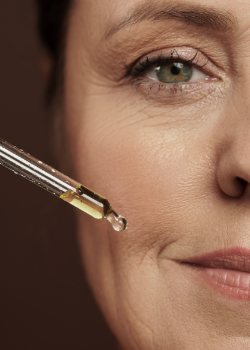Cycle-syncing nutrition: How females can harness their hormones

Dr Nicky Keay, Honorary Clinical Lecturer, Division Medicine, University College London, and author of the book “Hormones, Health and Human Potential”, will join NutraIngredients' Active Nutrition Summit this October to discuss the interaction between nutrition, hormones and health in female athletes.
Providing a preview of her presentation, she talks to Nikki Hancocks, NI-Europe Editor, about the orchestra of hormones keeping rhythm in the female body.
She notes how poorly informed women, and even health professionals, are are about this vital conductor of female health.
"It’s important to remember that your hormones impact every element of your health, not just your fertility," Keay notes, "if you take the contraceptive pill you are flattening your hormones so you don’t go through your monthly cycle... Studies are coming out saying if you have suppressed your hormones with the contraceptive pill ever since your teens, this will affect your bone health.”
It was only last year that Keay encouraged NICE (National Institute for Health and Care Excellence), in England, to change their guidelines surrounding use of the contraceptive pill to cover serious nutritional issues.
The health care institute was advising that if a woman’s periods had stopped because of RED-S (relative energy deficiency in sport) - a common issue in female athletes trying to stay lean - doctors could put her onto the contraceptive pill.
Keay was shocked by this advice and brought information to NICE's attention which led to the removal of this guidance.
“If your hormones are already squashed due to inadequate energy intake, why would you squash them further with the pill?" she asks, adding: “It’s because it makes the doctor and the patient feel better – the doctor can prescribe something for the problem, and the patient gains a monthly withdrawal bleed which makes them feel the situation is resolved.”
Discussing the nutritional difficulties that can come with teenage-hood, Keay points out that puberty brings a natural fluctuation in hormones, weight changes, and skin imperfections.
“The challenge is, you have so-and-so on Instagram who’s super skinny and has perfectly clear skin so now there is a big increase in disordered eating in this age group. And this is absolutely the wrong thing for them to do to their bodies at this time.”
She adds that many young girls will go to the doctor for a prescription for the pill in order to solve the skin issues – another extreme solution which dampens natural hormones and can negatively impact their health.
She argues it’s the same lack of understanding that leads to unnecessary HRT (hormone replacement therapy) prescriptions in menopause.
“Menopause isn’t a disease or an illness and, actually, because your hormones are changing, you need to adapt your diet and lifestyle accordingly.
“The first things you might notice when you go through perimenopause and menopause is you start to put on some weight around your waist.
“The knee-jerk reaction to this is to restrict energy intake, but that’s not the best way to support your body.
“Increasing protein intake and reducing carbs and sugary foods will be a better solution.”
Personalised nutrition solutions
Discussing the opportunities in wearable tech, Keay says she has done some work with the experts behind 'Hello Inside', using continuous glucose monitors to track how menstrual cycles impact glucose control in women. This was insightful in discovering how diet preferences change throughout the cycle too, with more glucose consumed in the luteal phase.
She points out that she has "mixed views about non-diabetic people monitoring themselves with CGMs as, in the wrong hands, it can add to obsessive behaviours”, but she adds that the use of CGMs can be beneficial if used to ensure female athletes are consuming enough energy.
Experts from academia and industry will come together to discuss the topics of hormones, health, personalised nutrition and more, during NutraIngredients' inaugural Active Nutrition Summit this October (9-11). Keay will join day one of the conference which is devoted to the topic of women's health, with discussion unveiling the newest research in this area and the new innovations coming to market to support this audience. Get your tickets now! The early bird discount runs out at the end of July.
Blog Post

Seeing is believing: Supporting the skin microbiome
Delve into the power of the skin microbiome and the rise of probiotic and postbiotic cosmetics for healthier skin.












